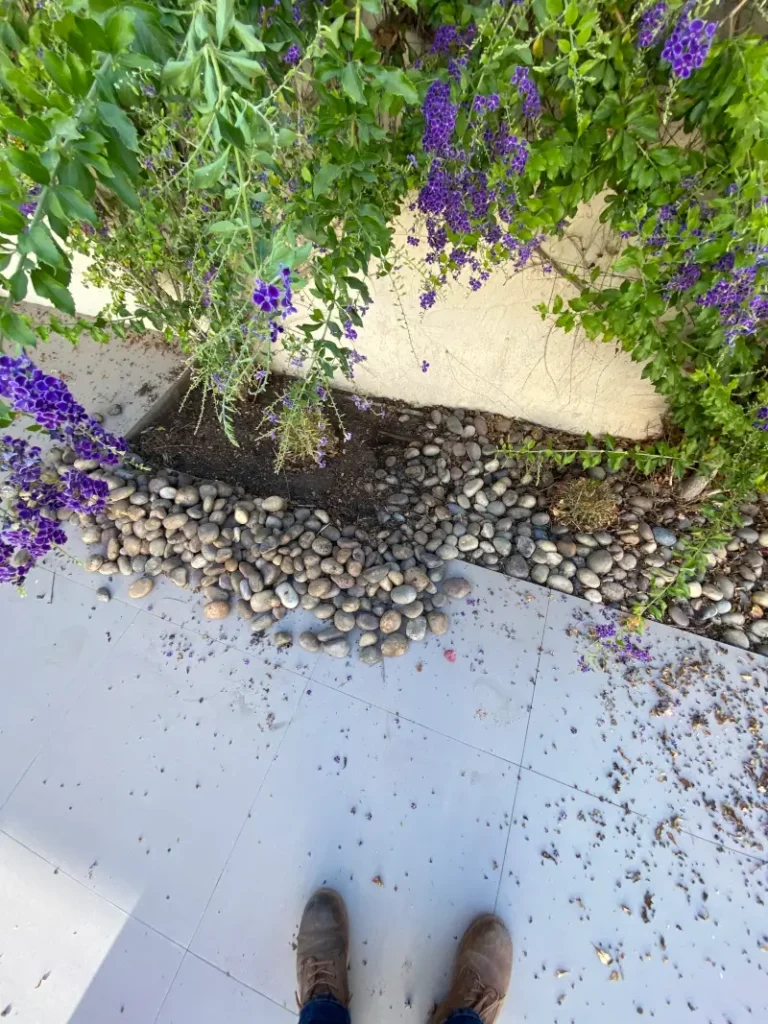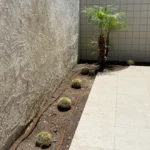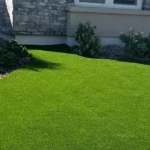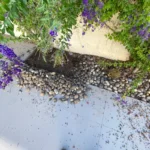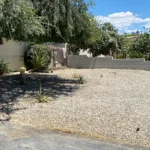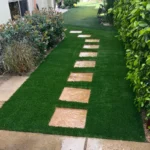Choosing the right ground cover for your landscaping can make a big difference in the health and look of your plants, pathways, and overall design. Both gravel and mulch offer unique benefits, but they’re suited to different purposes and styles. Below, we’ll break down the pros and cons of each option to help you decide which one best suits your landscaping needs.
Gravel: The Durable, Low-Maintenance Choice
Gravel is a popular option for landscapes due to its durability, longevity, and modern look. It works well for pathways, garden beds, and xeriscapes, adding texture and structure to any space.
Pros of Gravel
- Low Maintenance: Gravel requires minimal upkeep. It won’t decompose, so it doesn’t need to be replaced as often as mulch.
- Long-Lasting: With a lifespan that can last several years, gravel is a cost-effective choice over time, especially in areas with heavy foot traffic.
- Excellent Drainage: Gravel is ideal for promoting drainage, making it a great option for garden beds, around trees, or near buildings where water pooling could cause issues.
- Variety of Styles and Colors: Available in a range of sizes, textures, and colors, gravel allows for a customized look that can enhance the aesthetic appeal of any landscape.
Cons of Gravel
- Heat Retention: Gravel can absorb and reflect heat, making the area warmer. This may not be ideal for areas with high sun exposure, as it could stress plants in hotter climates.
- Higher Initial Cost: Although gravel is low-maintenance, it can have a higher upfront cost compared to mulch.
- Limited Nutritional Benefits: Gravel doesn’t provide the soil with organic nutrients, so it’s less ideal for plant-heavy landscapes that rely on soil enrichment.
Mulch: The Nutrient-Rich, Plant-Friendly Option
Mulch, typically made from organic materials like bark, wood chips, or leaves, is known for its ability to enrich soil and support plant health. Mulch is commonly used in garden beds, around trees, and in flower beds.
Pros of Mulch
- Soil Enrichment: As it decomposes, mulch adds organic matter to the soil, improving its structure and nutrient levels, which boosts plant health.
- Temperature Regulation: Mulch acts as an insulator, keeping soil cooler in the summer and warmer in the winter, creating a more stable environment for plants.
- Moisture Retention: Mulch helps retain moisture in the soil by slowing down evaporation, which can reduce watering needs and support healthy root growth.
- Weed Control: A thick layer of mulch helps suppress weed growth, saving time on garden upkeep and keeping plants healthier by reducing competition for nutrients.
Cons of Mulch
- Frequent Replacement: Because mulch decomposes over time, it requires regular replacement, typically every 1-2 years, depending on the material and climate.
- Attraction for Pests: Some types of organic mulch can attract pests like termites, which may not be ideal if applied close to structures.
- Less Durable for Heavy Traffic Areas: Mulch can break down and shift more easily than gravel, making it less suitable for pathways and areas with heavy foot traffic.
When to Use Gravel vs. Mulch: Best Applications
Choosing between gravel and mulch often depends on the purpose and location of your landscape elements. Here are some scenarios where one may work better than the other:
Use Gravel For
- Pathways and Patios: Gravel is durable and visually appealing for paths, patios, and walkways.
- Drainage Areas: Gravel is excellent for areas that require good drainage, such as around foundations, driveways, and pathways prone to pooling.
- Xeriscaping: For water-efficient landscaping, gravel complements drought-tolerant plants and minimizes water needs.
- Modern or Minimalist Designs: Gravel offers a clean, polished look that works well in contemporary or minimalist landscape designs.
Use Mulch For
- Flower Beds and Vegetable Gardens: Mulch provides the soil enrichment and moisture retention plants need to thrive.
- Around Trees and Shrubs: Mulch insulates roots, retains moisture, and enhances soil health around large plants.
- Areas Prone to Erosion: Mulch helps prevent soil erosion, especially on slopes and in garden beds with softer soil.
- Traditional or Lush Gardens: Mulch is a natural fit for traditional or cottage-style gardens that emphasize a lush, organic appearance.
Combining Gravel and Mulch for a Balanced Landscape
In some cases, a combination of gravel and mulch can offer the best of both worlds. Many landscapes use mulch in garden beds for plant health and gravel for pathways, seating areas, or decorative accents. By combining both materials strategically, you can achieve a balanced look that meets both aesthetic and functional goals.
Choosing the Right Ground Cover for Your Landscape
Ultimately, the choice between gravel and mulch depends on your landscape’s specific needs and your design goals. If you’re looking for durability and low maintenance, gravel may be the way to go. If enriching the soil and supporting plant health are top priorities, mulch is likely the better choice. Consider the unique demands of your space, and don’t be afraid to get creative—both materials can work beautifully together to create a landscape that’s functional, visually appealing, and tailored to your needs.
Need help choosing the right ground cover?

